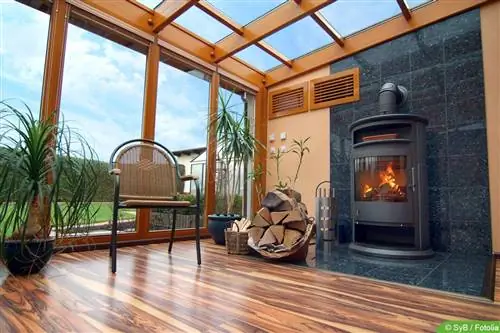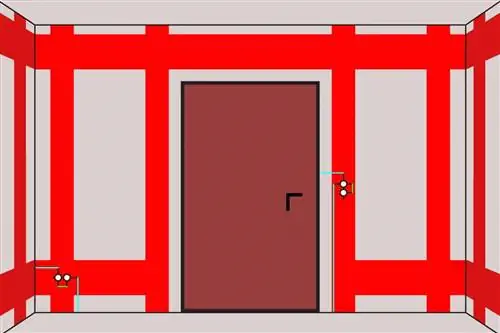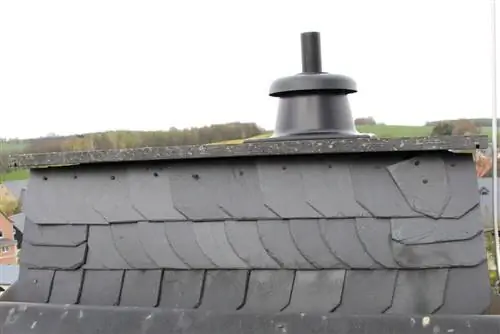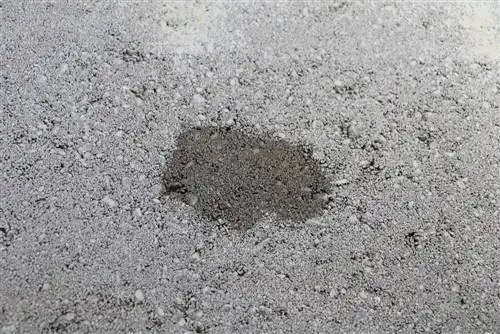- Author admin caroline@plants-knowledge.com.
- Public 2023-12-17 03:39.
- Last modified 2025-01-24 12:45.
A fireplace can be a wonderful addition to the living space and not just because it spreads pleasant warmth. It is also visually decorative - but potentially dangerous.
Fireplaces
Modern models can be installed in almost any room and create a cozy atmosphere. On cold winter days they provide warmth and a pleasant light. However, the suitability for the respective room depends on various factors.
- Type of operation
- Need for an exhaust draft
- Heat development
Not every fireplace requires a flue, which means it can also be installed in a rented apartment without a chimney. Ethanol and electric models, for example, are suitable for this.
When burning with wood, briquettes or coal, however, the smoke must be able to escape. This is only possible if there is a chimney nearby.
Tip:
The best thing to do is to ask a chimney sweep who can give you comprehensive advice on the situation on site. They can also provide suitable individual recommendations on the type of fireplace.
Walls
For walls, the distance to the stove depends on whether they are combustible or not. If there is no risk of fire, 20 centimeters is sufficient. The situation is different with combustible wall designs.
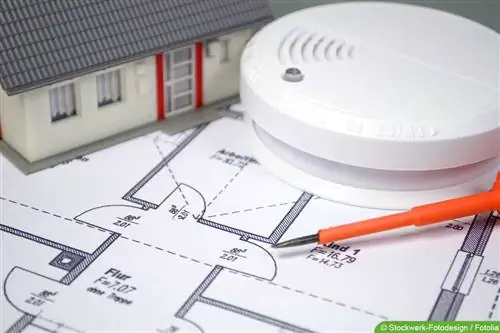
These include, among others:
- Images
- Wood paneling
- Plastics
- wallpapers
- Textiles
Be careful with decorations such as a wall tattoo or picture frame. If these are available, at least 70 centimeters are necessary between the walls and the oven.
Blankets
Most stoves on the market are compact, so there is usually no risk for ceilings. Sloped ceilings are an exception. Here, the space between the chimney and the sloping roof may be insufficient. In the worst case scenario, this poses a risk of fire. Even if this does not happen, discoloration may occur. This also applies to:
- Plastering
- Disguise
- wall color
For this reason, you should ensure that there is at least one meter between the oven and the ceiling.
Furniture
While metal furniture, such as filing cabinets, can withstand heat comparatively well, plastic, wood, glass and upholstery are much more sensitive. Therefore the necessary distances also vary. For this reason, you should stick to 80 to 100 centimeters for appropriate safety. Otherwise, you should expect the following problems:
- Splinter
- Fire Danger
- Color changes
- Burst
- brittle spots
- shortened lifespan
- Warping
Note:
Elements made of plastic can also melt or change shape. Handles or inserts are therefore exposed to increased risk.
Sockets and cables
There must also be enough space left for electrical appliances and the socket on the wall so that the heat from the fireplace does not cause any problems. For ovens with appropriate insulation, 20 to 40 centimeters are usually sufficient.
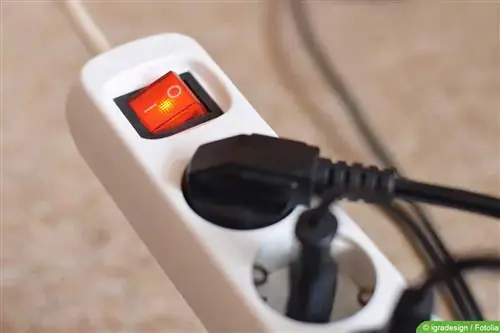
If insulation is missing, 80 to 100 centimeters should be maintained. This applies not only to the socket itself, but also and especially to cables that lead away from it.
Window
The distance to windows is generally 80 centimeters. This is to ensure that the glass is not damaged by the heat and does not crack or even burst. This can be particularly the case with double windows if one pane of glass heats up significantly more than the other and this creates tension.
In addition, there are often flammable objects on windows. For example:
- Curtains
- Roller blinds
- Curtains
These are also a reason why a greater distance must be maintained. On the other hand, if you are too close to the window, the running costs for the fireplace can increase because the heat is lost more quickly.
Home Textiles and Co
Textile surfaces are often found in large numbers in rooms where fireplaces are installed. These include, among others:
- Decorations
- Pillow
- Toys such as plush toys
- Carpets and rugs
- Dried flowers
- Curtains
- Wool blankets
Curtains and curtains can be a problem if the fireplace is near a window or balcony door. Even slight movements can get them dangerously close to the oven. Therefore, make sure that there are as many distances as possible and that direct contact is not possible.
Note:
Also consider possible sparks. This can cause even distant objects to catch fire. Therefore, only open the door if it is safe to do so and you will be in the room for a long period of time afterwards. A spot that initially smolders unnoticed cannot develop into a fire.

